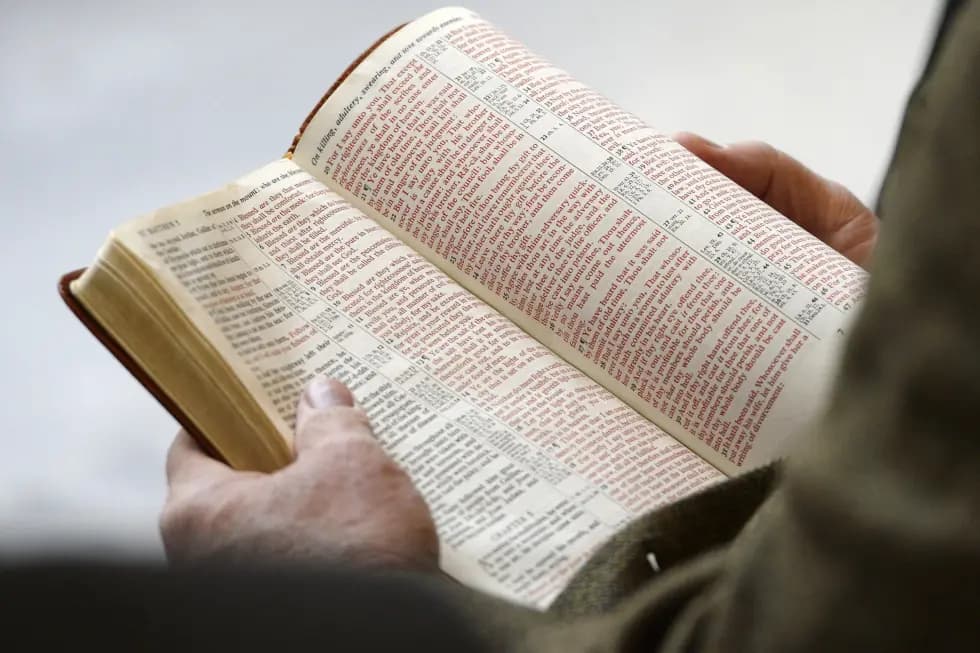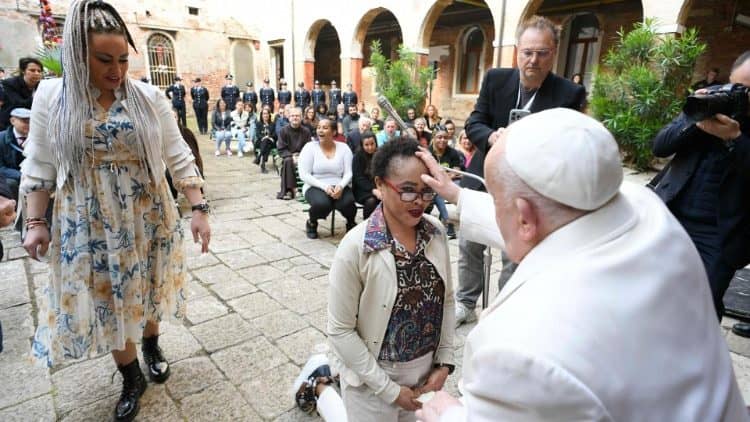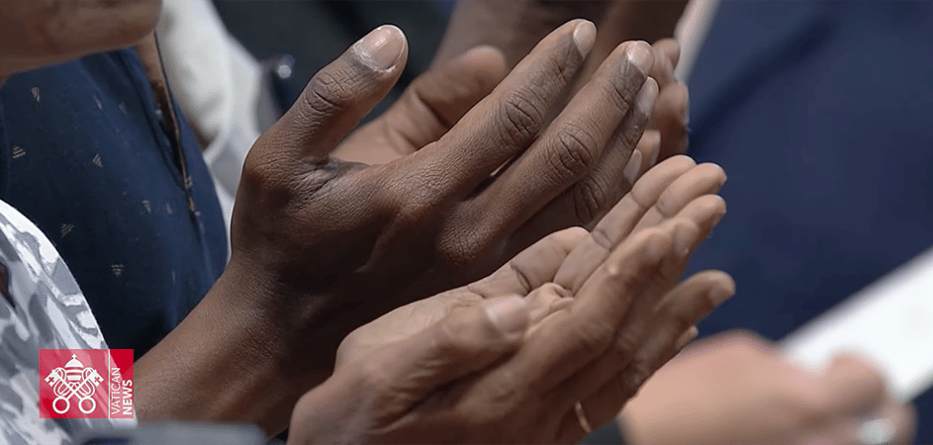As we seek to answer the call to prayer, we are helped by the Church’s rich treasury. Such a treasury includes the prayer methods. Each of the methods is unique, but all serve the same purpose, namely, to help us encounter God, to speak and to listen to him.
Of the many prayer methods, the oldest is lectio divina. There is much to be said about lectio divina, and an understanding of this prayer method should not be rushed. There are prudential and wise reasons that affirm the ancient and ever youthful significance of lectio divina.
When engaging this prayer method, the traditional posture is kneeling with our palms raised up. It indicates our docility and openness to the Word of God.
For many Westerners, such a posture can feel uncomfortable at first. While any posture can be assumed for prayer, it is important to know the traditional postures of the prayer methods since they indicate to us that both our souls and bodies are involved in our moments of prayer. We cannot forget the role of our bodies as we seek to approach God.
As human beings, made in the image and likeness of God, we are both body and soul. As we’ve been created, so we will be saved and sanctified. Postures are important, but there is flexibility.
Lectio divina is an active attempt to understand the revelations which God has given to us. In our day, that leads us to the written Word of God and a heartfelt effort to allow it to penetrate our souls and enlighten our understanding.
Lectio divina involves a rhythmic praying of the Word of God, allowing it to slice and dice our interior selves, and then rebuild us, bringing us back together and into a harmonious unity with the Word of God. As the Letter to the Hebrews explains: “Indeed, the word of God is living and active, sharper than any two-edged sword, piercing until it divides soul from spirit, joints from marrow; it is able to judge the thoughts and intentions of the heart. And before him no creature is hidden, but all are naked and laid bare to the eyes of the one to whom we must render an account.”
Lectio divina is about a slow, or sometimes not so slow, peeling of the union of our hearts. It is the tearing open, the piercing of our souls, the transforming, healing, correcting, stretching, and building up of our spiritual selves by the Word of God. As Saint Paul teaches us: “Let the word of Christ dwell in you richly; teach and admonish one another in all wisdom; and with gratitude in your hearts sing psalms, hymns, and spiritual songs to God.”
Through lectio divina, our souls are marinated in the Word of God. They become seasoned and enriched by divine wisdom and the presence of God.
Saint Augustine received a powerful lectio divina that changed his entire life. At a pivotal moment in his life, when the graces of conversion were pressing upon his heart, he heard the words: “Take and read.” Like the prophets of old, God was speaking to him. The saint picked up the Bible and the admonishment of Saint Paul was there: abandon sin and seek the Lord. The almost casual lectio divina was all he needed. He turned his entire life around and began to follow the way of the Lord Jesus.
We are told that Saint Teresa of Avila spent some ten years in lectio divina on the simple expression, “Our Father.” The beginning of the Lord’s Prayer captivated her entire being and the Holy Spirit would not allow her lectio divina to end until she received all that he desired to give her.
We can know, have memorized, and studied the Bible, but lectio divina allows us the freedom to realize the Word of God in our own souls. The subjective component is made real in our own lives. We know the biblical message objectively, and through lectio divina we come to integrate what we know subjectively in our own hearts. As prophetic wisdom teaches us, the Word comes to us and does not return to God empty. It converts, teaches, and sanctifies us.
Through lectio divina, our narrative becomes intertwined with the Word of God. The revelations and message of God become our own worldview and message. Through lectio divina, we do not simply receive the Word of God, but truly become a part of the Word of God.

















